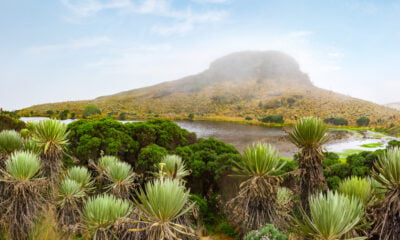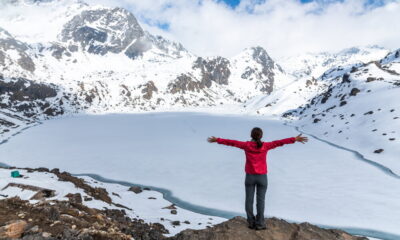

Environment
Heritage Sites Won’t Resist Climate Change
A new report has shown that World Heritage sites are under significant risk from climate change. “World Heritage and Tourism in a Changing Climate” states melting glaciers, rising seas and worsening droughts as just three disasters that could impact on the world’s most preserved sites. The news could irrevocably change features of the sites that make them so appealing to tourists today.
“World Heritage and Tourism in a Changing Climate” was released by the United Nations Educational, Scientific and Cultural Organization (UNESCO), the United Nations Environment Program (UNEP), and the Union of Concerned Scientists (UCS).
Mechtild Rössler, director of UNESCO’s World Heritage Center, said: “Globally, we need to better understand, monitor and address climate change threats to World Heritage sites. As the report’s findings underscore, achieving the Paris Agreement’s goal of limiting global temperature rise to a level well below 2 degrees Celsius is vitally important to protecting our world heritage for current and future generations.”
The new report lists 31 natural and cultural World Heritage sites in 29 countries that are vulnerable to increasing temperatures, melting glaciers, rising seas, intensifying weather events, worsening droughts and longer wildfire seasons. It documents climate impacts at iconic tourism sites—including Venice, Stonehenge and the Galapagos Islands—and other World Heritage sites such as South Africa’s Cape Floral Kingdom, the port city of Cartagena, Colombia, and Shiretoko National Park in Japan.
“Climate change is affecting World Heritage sites across the globe,” said Adam Markham, lead author of the report and deputy director of the Climate and Energy Program at UCS. “Some Easter Island statues are at risk of being lost to the sea because of coastal erosion. Many of the world’s most important coral reefs, including in the islands of New Caledonia in the western Pacific, have suffered unprecedented coral bleaching linked to climate change this year. Climate change could eventually cause some World Heritage sites to lose their status.”
Because World Heritage sites must have “Outstanding Universal Value,” the report recommends that the World Heritage Committee consider the risk of prospective sites becoming degraded by climate change before they add them to the list.
As the effects of climate change play out, the tourism industry and economies of some countries home to World Heritage sites may be particularly hard hit, according to the report. Tourism, one of the world’s largest and fastest growing economic sectors, generates 9 percent of the world’s gross domestic product and provides one in every 11 jobs globally. Developing countries such as Nepal, home to Sagarmatha National Park and Mount Everest, and Uganda, where the mountain gorillas’ habitat in Bwindi Impenetrable National Park may be at risk, are especially reliant on tourism revenue.
The report pointed out that tourism itself poses a threat to many World Heritage sites, especially fragile places like the Galapagos Islands, and when climate change is added to the mix it becomes a threat multiplier.


 Environment11 months ago
Environment11 months agoAre Polymer Banknotes: an Eco-Friendly Trend or a Groundswell?

 Features10 months ago
Features10 months agoEco-Friendly Cryptocurrencies: Sustainable Investment Choices

 Features11 months ago
Features11 months agoEco-Friendly Crypto Traders Must Find the Right Exchange

 Energy10 months ago
Energy10 months agoThe Growing Role of Solar Panels in Ireland’s Energy Future





























